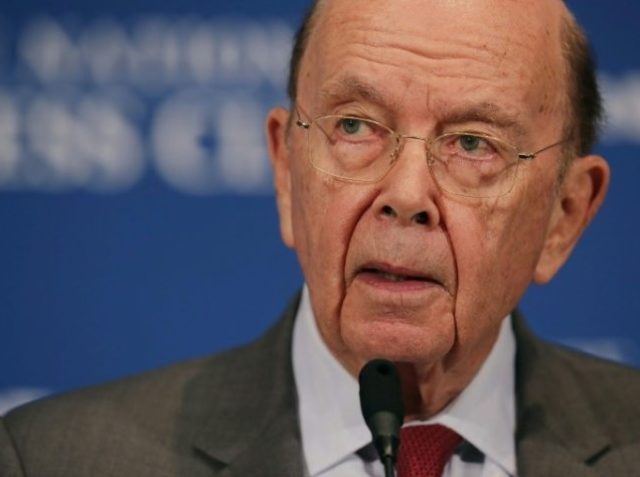The Trump administration defended its investigation into auto imports Thursday by coupling economic security with national security.
“Economic security is military security. And without economic security, you can’t have military security,” Commerce Secretary Wilbur Ross said in a CNBC interview Wednesday.
President Donald Trump announced Wednesday night that he had instructed the Commerce Secretary to initiate what is known as a Section 232 investigation into whether imports of cars and other vehicles were a risk to American national security. Under a 1962 law, the president is permitted to create trade barriers such as tariffs if the Commerce secretary finds that imports are creating a national security threat.
“National security is broadly defined to include the economy, to include the impact on employment, to include a very big variety of things,” Ross said,
A person briefed on the matter said the investigation is likely to take int0 account the fact that cars and trucks are increasingly high-tech imports that include “more microchips that pistons and hoses.” The potential for self-driving cars, AI-assisted driving, and next-generation wireless 5G connected vehicles makes the risks of foreign malware slipping into the country even more acute, the person said.
“Cars today are super-computers on four wheels. We need to make sure we know whether imported parts and vehicles are safe from foreign manufacturers or their governments using them to spy on Americans, track our movements, or even cripple our transportation infrastructure,” the person said.
Automobile manufacturing has long been a significant source of American technological innovation. This investigation will consider whether the decline of domestic automobile and automotive parts production threatens to weaken the internal economy of the United States, including by potentially reducing research, development, and jobs for skilled workers in connected vehicle systems, autonomous vehicles, fuel cells, electric motors and storage, advanced manufacturing processes, and other cutting-edge technologies.
The market share of imported cars has been increasing in recent years. According to Wilbur Ross, imports’ share of new cars sold has risen from 38 percent to 48 percent, with nearly 8 million imported cars sold in the U.S.
In its statement Wednesday, the Commerce Department painted an even bleaker picture.
During the past 20 years, imports of passenger vehicles have grown from 32 percent of cars sold in the United States to 48 percent. From 1990 to 2017, employment in motor vehicle production declined by 22 percent, even though Americans are continuing to purchase automobiles at record levels. Now, American owned vehicle manufacturers in the United States account for only 20 percent of global research and development in the automobile sector, and American auto part manufacturers account for only 7 percent in that industry.
Ross said a major reason imports have taken over such a large part of the American market is that our tariffs on cars are much lower than those of our trading partners.
“Part of the reason for the big imports coming in as opposed to our exports is that we only have a 2.5 percent tariff on autos and auto parts,” Ross said. “Europe is 10 percent. China had been 25 percent. Now, partly because of other discussions we are having with them, they’ve dropped that to 15. Malaysia is way up in the double digits. India is way up in the double digits.”
Ross added that he doesn’t blame countries for this behavior. Rather he blames American policy makers for “stupidity.”
“I don’t blame the foreign countries. They’re doing what is best for them. The stupidity is that we’ve let ourselves get into this box of extremely low [tariff] rates. We gave it away unilaterally,” Ross said.

COMMENTS
Please let us know if you're having issues with commenting.